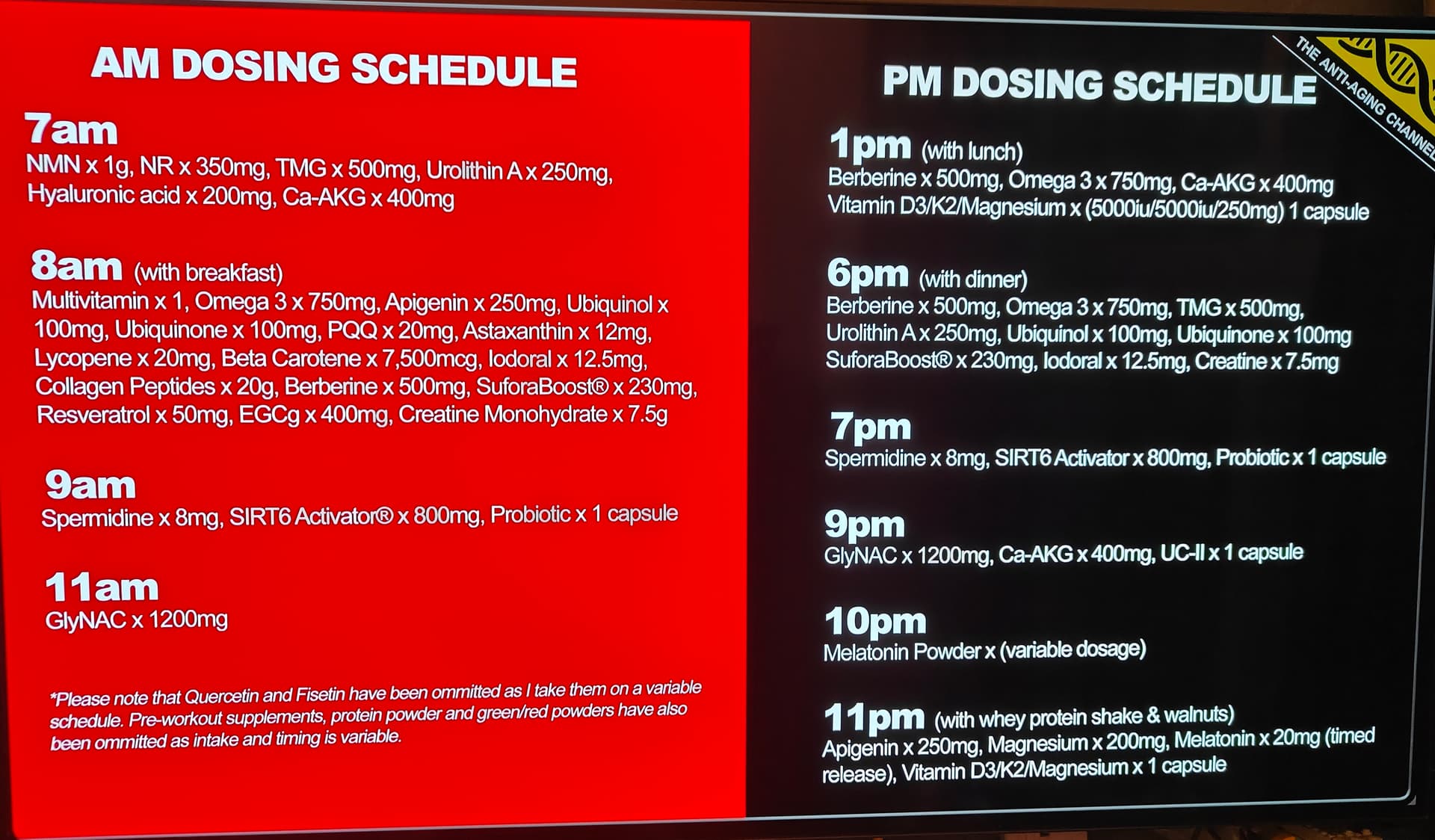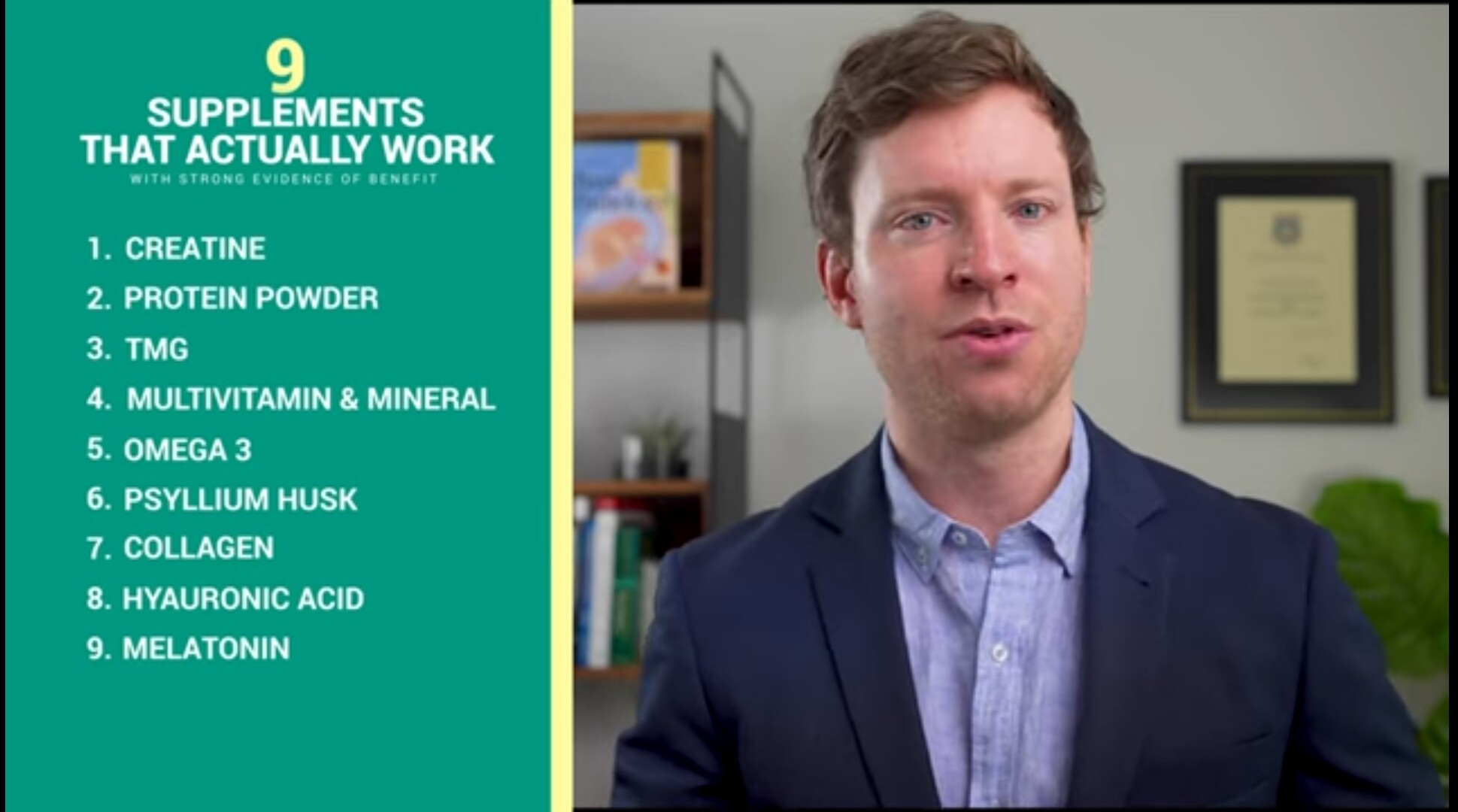It’s interesting that the AI lists first just about the same supplements listed by Peter Attia and other credible influencers.
But then, he goes on including unknown molecules and ignoring other well-known ones…
A lot of these are complex, however. Zinc is very easy to overdose. The menaquinones with more isoprene residues (eg K2 MK7) are useful to make the Electron Transport Chain more efficient, but disrupt sleep.
Etc etc.
Creatine is interesting because it increases endogenous creatinine which acts as a storage of ATP, but I wonder if chronic usage undermines AMPK.
AI is worthless if it includes stuff like resveratrol and vitamin E.
I don’t know anything about hemp oil. I’ve always taken algae oil instead of fish oil because I’m vegan… and I assume there is less mercury, although I haven’t checked. Any thoughts of algae vs hemp?
EDIT:
I just googled and see hemp has ala and not dha/epa … asked and answered ![]()
Fish or Hemp: What is essential?
When we talk about essential fatty acids, the term “essential” actually only applies to Alpha Linolenic Acid (LNA) and Linoleic Acid (LA) - the two Omega oils found in plants but does not apply to Eicosapentaenoic Acid (EPA) or Docosahexaenoic Acid (DHA), the Omega 3 derivatives found in Fish Oil. The reason is that your body can and does convert LNA into EPA and DHA, so you don’t need to eat EPA or DHA - you only need to make sure you have enough LNA and your body can make the others from it. FACT #1 - the EPA and DHA found in Fish Oil are not essential dietary components. But what about claims that your body cannot convert ALA (as found in Hemp Oil) into EPA and DHA or that the conversion rate is too low? That claim was not true when the fish oil industry invented it and it is not true now. Your body can convert ALA into both EPA and DHA. Various factors influence how much conversion takes place but the research is well established that at least 20-30% of Omega 3 LNA gets converted into the Omega 3 derivatives EPA and DHA. FACT #2 - Omega 3 from plant sources are converted into EPA and DHA in your body. Things that enhance the conversion of ALA into EPA and DHA are:
Protein
B Vitamins
Calcium, Zinc, Magnesium
All of which are found in high abundance in Hemp Seeds. Another thing which increases the conversion of ALA into EPA and DHA is being vegetarian. Research at Cambridge University showed that conversion is 22% higher in vegetarians than in people who eat fish. FACT #3 - Vegetarian bodies are better at metabolising ALA Omega 3 A few other things you should know about Fish Oil. Firstly, wild and farmed fish all over the world are known to be contaminated with dangerous toxins such as Mercury, Dioxins and PCBs. This is why the British Government Food Standards Agency and others publish public warnings to limit the amount of fish eaten, especially in pregnant women.
How about measuring one’s omega3 index and start from there? Assuming Bill Harris is right with his risk assessment
I don’t actually use fish oil and only use algae oil. You mentioned some things I’ve never heard before, so thanks for taking the time to share all of that info.
Algae oil sounds very expensive. Hemp oil used to be very expensive… but the last 2 years it has dropped to about as low as $6 AUD for 250ml. Cheap enough for me to consume 1 tablespoon a day. My LDL and HDL score is never an issue. It taste a bit like EVOO, perhaps a little stronger… and I started having it with MCT ($7.50 AUD for 250ml). Both I buy at the local supermarket. Both are certified organic.
Costco has algae oil on sale. Its cheaper than fish oil now apparently.
I guess if you think you need DHA and EPA over ALA. I believe the body can convert ALA to DHA and EPA as it needs. Fish oil is never an option because of the mercury risk. Thus I feel safer taking hemp oil which have other anti inflammatory benefits. Of course algae oil producer will tell you theirs are better and vice versa… For me, my blood work shows good results and no fishy after taste. As for algae… I am not sure… but I stick to what I know.
ALA better for the heart:
ALA conversion to EPA and DHA:
https://www.sciencedirect.com/science/article/pii/S0002916523277758
The body can convert ALA , a plant-based omega-3 fatty acid, into DHA and EPA , but the conversion process is very inefficient. Only a small percentage of ALA is converted to EPA (typically less than 10%) and even less to DHA (often less than 1%).
Fish oil supplements are purified through processes such as molecular distillation to remove contaminants, including mercury.
Ryker’s top 36 supplements. Overall a good stack, but some are questionable IMHO. He does come across as a DNA shill though. I prefer to buy some supplements from other quality companies that are less expensive. He probably gets a really good deal from DNA for his promotion.
The timing chart at the end is exceptional.
He buys everything from iHerb or DoNotAge
Discount Codes:
IHerb code - GAC612
DoNotAge code - RYKER
I like iHerb when they have a 20%+ discount otherwise I usually use Amazon for more options and cheap prices. My favorite brands are NOW and Bulk Supplements.
Base supplements: (I agree with all these)
Multivitamin
Vitamin D3 K2 and Magnesium
Omega 3 fish oil
Iodine
Creatine Monohydrate
Mitochondrial: (I take Ca-AKG only)
Urolithin A
CoQ10
PQQ
Ca-AKG
NAD+ (I take NMN and TMG)
NMN
NR (why both NR and NMN?)
TMG
Apigenin
Autophagy (Maybe?)
Spermidine
Antioxidants (I take all except Beta Carotene)
Melatonin 10 mg
GLYNAC
Astaxanthin
Lycopene
Beta Carotene (Not good. Cancer!!!)
Quercetin
Senolytics (Rapa and Taurine are better)
Fisetin
Epigenetics (Probably OK)
EGCG
Sulfuraphane
Resveratrol
SIRT6 Activator
Alkaloids (Good)
Berberine
Skin (Good)
Hyaluronic Acid
Collagen
Superfoods (Good)
Protein powder
Superfoods powder
Probiotics
Pre-workout (Good)
Beta-Alanine
Citrulline Malate
Taurine
The best part is he includes timing and dosage information
I take a lot of the ones mentioned. Recently added DHEA and Pregnenolone as testosterone precursors. My total testosterone jumped from 700 to 980. I feel more energy, better workouts, all the T benefits. I got the idea from Dave Pascoe who talked about both on a podcast.
Did he mention the effects these supplements have had on him, on different biomarkers, for example?
Do you attribute the jump from 700 to 980 to these two supplements alone, or you started using other supplements (same times as these) or started other things i.e work outs etc?
good question, workouts consistently variable, i mix things up frequently. I also have been trying Tongkat Ali, Fenugreek, and Kali Musli. I think these three made a smaller impact but some for sure.
I just watched the omegaquant (omega index) people destroy fatty15. I eat enough dairy to get any that I might need. I’ll post the video if I receive a copy of the presentation.
You mentioned these 2 oral peptides. Why do you take them and where do you source them from? You’ve piqued my interest.
@DeStrider,
May I ask what time of day you take tmg or if timing matters? I have some on hand that I might revisit. Thank you



